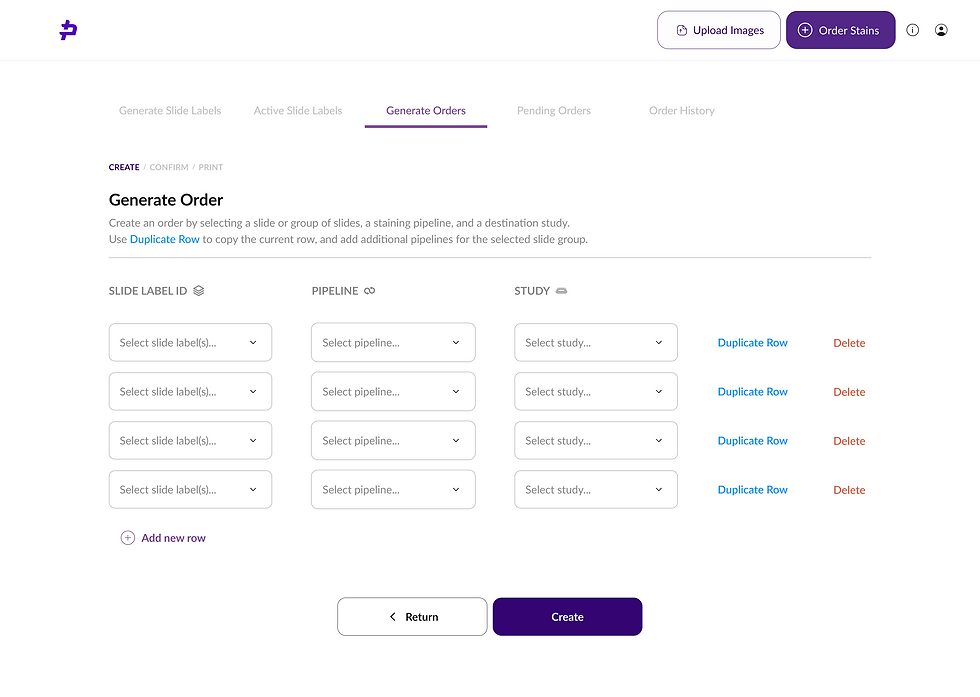
PROJECT OVERVIEW
Revamping Equator Studios for Enhanced Mapping and Design Experiences
At Equator Studios, which provides users with high-quality, easy-to-access elevation data and map design tools. Low retention rates on their application motivated the team re-think the user experience of their platform.
MADE FOR
Civil Engineers & Architects
YEAR
2022
SERVICE
Onboarding & Retention
ROLE
User Experience Designer
CLIENT
Equator Studios
CLIENT OVERVIEW
Equator Studios
Equator provides users mapping software used for extracting high-quality data and creating custom maps.

Target Audience:
Civil engineers utilize Equator Studios to access high-quality topography and GIS data, streamlining their project planning and proposal processes.
Civil Engineers

Architects
Architects and landscape designers use Equator Studios to enhance the design process by incorporating accurate mapping and elevation data.
Target Audience:

Breakdown of Users
These numbers are based off of the many metric platforms tracking user activity as well as user interviews.
FEEDBACK
Green loading pop up with white text lacks contrast.

VISIBILITY OF SYSTEM STATUS
Placement of call to action button, shown in green, isn’t clear. As a user, I’m not sure where to click next.
BACKGROUND
What is the current state of Equator’s platform?

PROBLEM COMPONENTS
Equator Topographic Entry Funnel

iIDEATION
Design Goals
01
Helping users find a location, edit boundaries, & create a site.

PROBLEM COMPONENTS
How can we improve the experience around creating, customizing, and exporting topographical data?


.png)
Design Goals
Improve the experience around; (1) searching, creating a site, and loading mapping data, (2) improve the workflow for customizing, marking up, adding additional data, (3) uploading & downloading the map, & creating project proposals.
You can use any QR code scanner app on your smartphone to read the information stored in QR barcodes.
Design Concept

By simply scanning the barcode with a smartphone or a dedicated scanner, users can effortlessly access the desired information, enhancing their experience around slide creation and stain ordering.
Implement automated system utilizing QR barcodes
SLIDE LABEL CREATION INTERFACE
Users need a way to create labels for their slides.
Slide labels should include an organ, an animal, and a slide idea, which would be generated after confirming the other two parameters.
1
SLIDE LABEL VISIBILITY & TRACKING
Users need a way to view their created labels.
There may be a time gap between creating the labels and placing an order, or a lab manager might create the labels while another person in the lab generates the order.
2
ORDER CREATION INTERFACE
Users need a way to place a virtual stain order.
To generate an order, they should select the slide label they want to be stamped, specify the pipeline, and choose a destination study for the slide to appear on the dashboard.
3
ORDER VISIBILITY & TRACKING
Users need a way to see their pending and past orders.
There may be a time gap between placing an order and seeing it processed or a user might need documentation of their order.
4
There are a few key actions that users need to be able to take from a user-facing perspective:
User Flow
Next we spent time thinking about the steps a user would need to go through in order to complete the task of creating a barcode and placing a stain order.
.png)
04
Order History

03
Generate Stain Orders

02
Active Slide Labels

01
Generate Slide Labels

DESIGN
Overview
When I started designing, I focused on the key activities of generating slide labels and generating stain orders as well as tracking and visibility of these key processes.
05
Print Labels or Print Label Details

04
Confirm Selection to Create a Unique ID

03
Select an Animal and Organ

02
Select ‘Generate Slide Label’

01
Enter Dashboard


SLIDE LABEL CREATION INTERFACE
Users need a way to create labels for their slides.
Slide labels should include an organ, an animal, and a slide idea, which would be generated after confirming the other two parameters.
1
DESIGN
Flow Walkthrough
01
Active Label with Details

SLIDE LABEL VISIBILITY & TRACKING
Users need a way to view their created labels.
There may be a time gap between creating the labels and placing an order, or a lab manager might create the labels while another person in the lab generates the order.
2
05
Print Order Report

04
Confirm Order Information

03
Select Slide Label, Pipeline & Destination Study

02
Select Generate Order List

01
Enter Dashboard


ORDER CREATION INTERFACE
Users need a way to place a virtual stain order.
To generate an order, they should select the slide label they want to be stamped, specify the pipeline, and choose a destination study for the slide to appear on the dashboard.
3
01
Order History

ORDER VISIBILITY & TRACKING
Users need a way to see their pending and past orders.
There may be a time gap between placing an order and seeing it processed or a user might need documentation of their order.
4

CONSISTENCY & STANDARDS
Each page on the "Generate Orders" and "Generate Labels" section has a clear left-aligned title that changes for each step in the flow. I devised a consistent column table format that would be used across all pages.

INSUFFICIENT COLOR CONTRAST
My site is the rectangle, but it's difficult to make it out against the rest of the page.

VISIBILITY OF SYSTEM STATUS
Lack of visual hierarchy in the global navigation makes it difficult for me to understand where I am in the app.

Enhanced Histology
Tissue Processing Flowchart


Enhanced Histology
Tissue Processing Flowchart
02
Helping users find a location, edit boundaries, & create a site.

Enhanced Histology
Tissue Processing Flowchart


Enhanced Histology
Tissue Processing Flowchart
03
Helping users add data layers, markup maps, & download or share their files.
02
Helping users add data layers, markup maps, & download or share their files.
